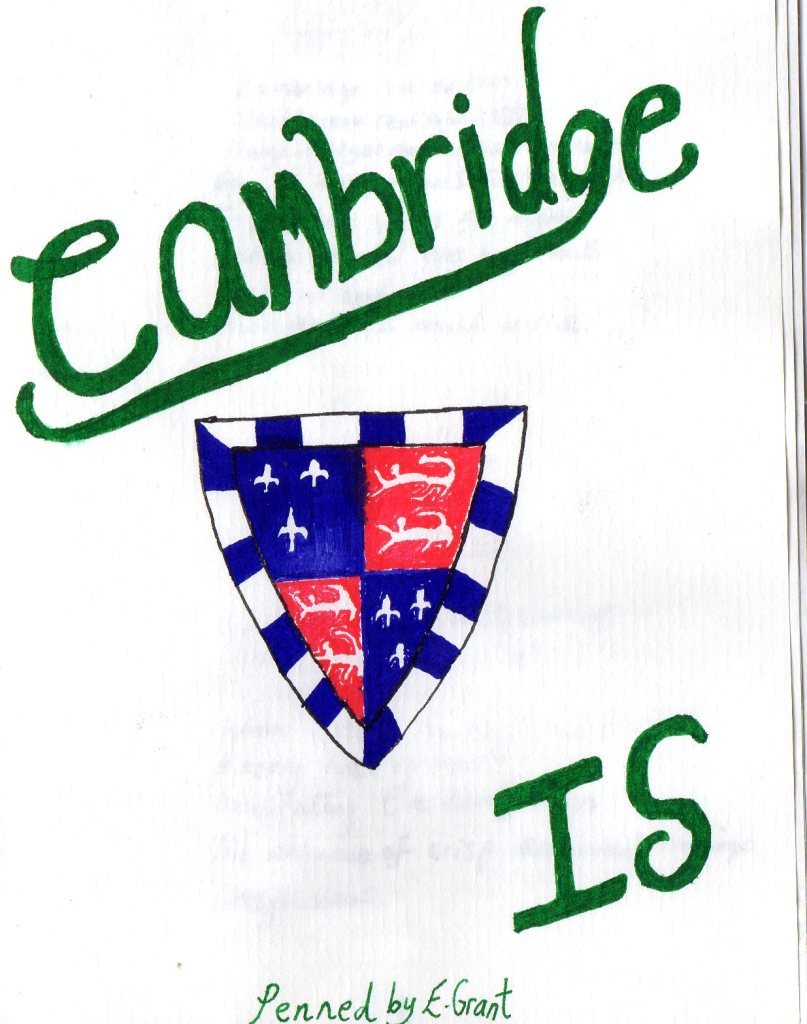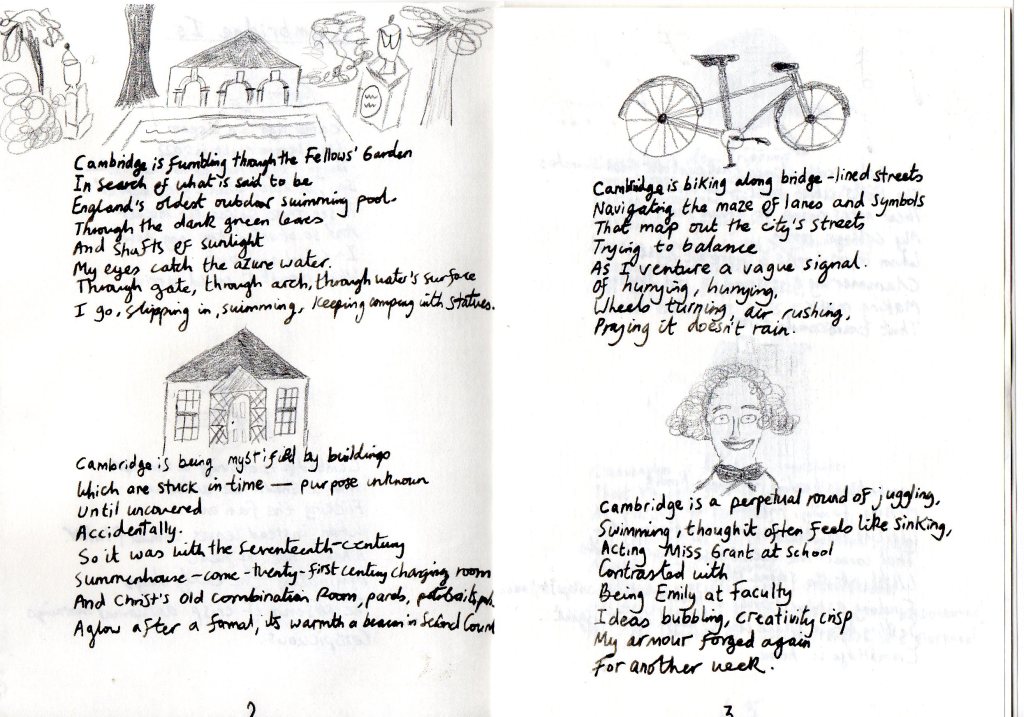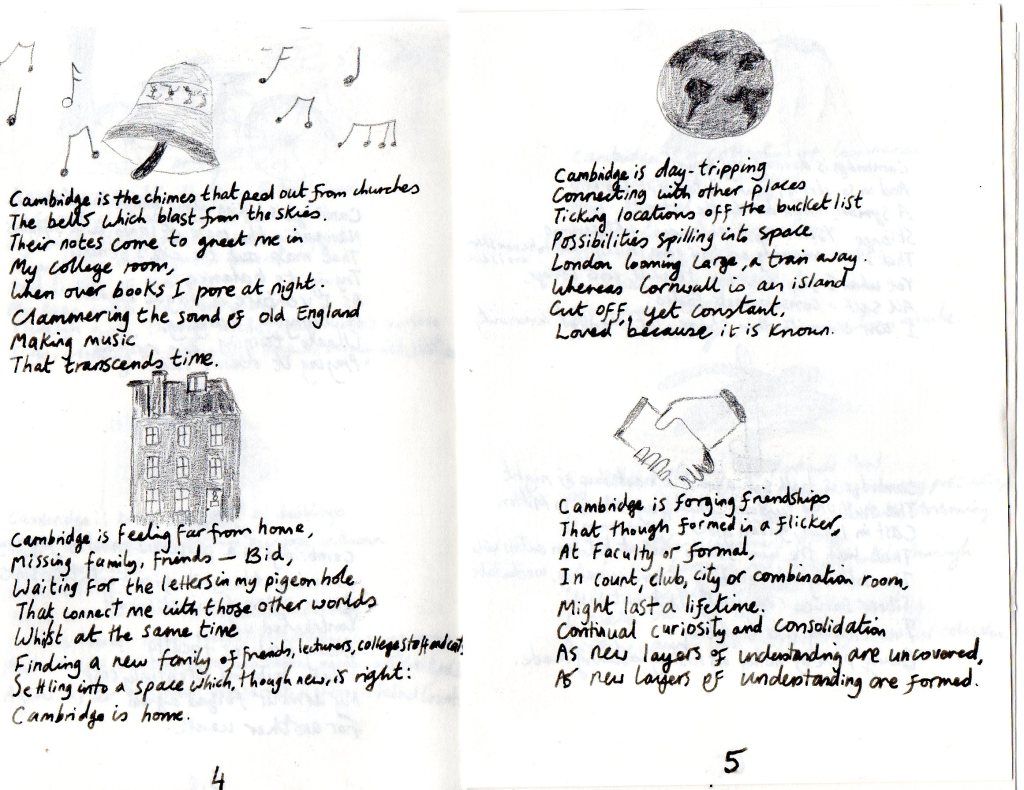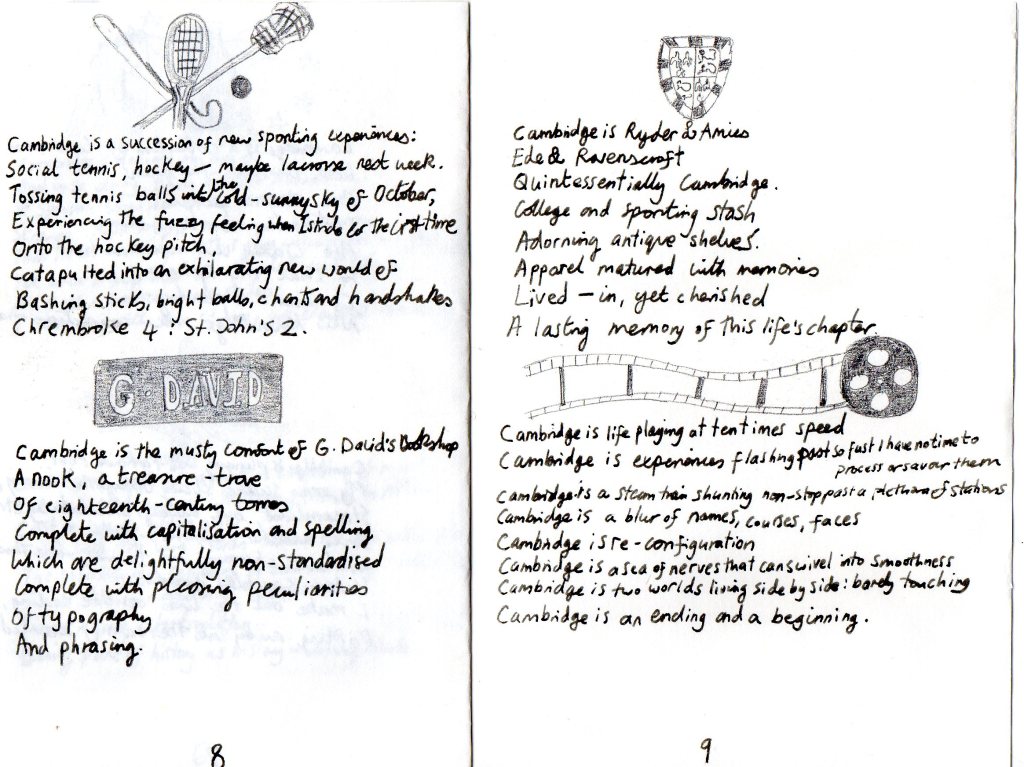People may be drawn to the Cambridge PGCE in Secondary English for many reasons; I can certainly recommend it for high-quality teaching by interesting and specialist staff, exciting and varied course content, opportunities to sample schools that are hugely diverse, and, most importantly, the fact that everyone, both peers and staff, are incredibly kind, supportive and fascinating people whose various strengths create a rich learning experience. But what you might not know, or have considered, is that this course is unique for its creativity.
I’ve been astounded by the extent to which imagination is celebrated and fostered by the English branch of the Secondary PGCE Course at the Faculty of Education in Cambridge. This creativity is not only the aspect I love most, but is also what has motivated me to keep pushing through tougher times. Creativity plays out in a plethora of ways: from novel teaching activities (which we learn about, try out at Faculty and use in our classrooms), in cross-curricular work, group work and presentations, assignments and the collaborative poetry writing that we engaged with across Michaelmas term. It was from these sessions that I first got the idea for ‘Cambridge Is’, the poem which I want to share in this post to exemplify the fruits of the course’s approach.
One of my highlights from Subject Studies was writing a collaborative poem that reworked the legend of ‘King John’s Treasure’, where we were encouraged to narrate the experience of a disaster shrouded in mystery from the viewpoint of inanimate objects. Re-defining who and what can be positioned as speaker helped me to reconnect with the creativity that had lain dormant in me for some time—it can be hard to prioritise creative writing amongst the pressures of work and a busy life. This collaborative approach meant that we created a poem which featured a contribution from all 17 of us on the English PGCE, and we each read out our lines in a spell-binding rendition of the poem.

In another teaching session, I was inspired by Robert Seatter’s ‘I Come From’, a poem that uses a refrain to circle around the poet’s origins. I drew upon this structure when I penned ‘Cambridge Is’, trying to encapsulate my first month in Cambridge.
I wrote the poem outside of Faculty, for a National Writing Project group session. Before I came to Cambridge, I had never heard of the UK National Writing Project (NWP); I’ve since learnt it is an organisation of teachers in local areas who meet in informal locations to share their creative writing and provide support. My PGCE cohort has been the first to form a PGCE group in Cambridge. We meet in pubs or cafes once or twice a term to share writing for our chosen group projects, pieces we have individually composed, and to carve out some time in which to enjoy writing in each other’s company. I’ve absolutely loved our sessions so far; they are helping to transform my concept of what it means to be a teacher: I no longer feel that I am working within a system with little agency, with my creative self cut off from the teacher in me. Instead, I’m starting to see a fusion, realising that the writing I do outside of class both rejuvenates me but also makes me a more inspiring teacher, someone who can better guide my students through the craft of the creative process.
So, I wrote my poem for the NWP group, but I also shared it with my English cohort at our ‘Creative Exchange’ at the end of Michaelmas term, where we were invited to bring something that reflected our creativity. The definition of creativity was broad: people brought music they had composed, played live music, shared written pieces, their students’ work or physical objects.
I hope you enjoy reading my poem, which I hope will offer a valuable insight into what a Cambridge experience can look like. I made the book in the style of other books I have previously made, with quill pens and pencil drawings, inspired by the sort the Brontes constructed for each other as children. For me, the physical appearance of my poem is as important as the words which constitute it, and so it was an opportunity for me to reconnect with my artistic creativity as much as my literary flair.
Our NWP group continues to evolve, and my time at Cambridge continues to generate rich material for writing. At the end of term, a Festive Scavenger Hunt at the University Library was arranged for us—a creative take on library initiation where we were tasked with finding an obscure selection of festive themed books scattered over a library which is bizarrely (and somewhat terrifyingly) idiosyncratic—think Dr Who (creaking 1930s lifts, corridors cloaked in darkness, hard-to-navigate referencing systems and odd study nooks). Not only do I now know my way round the UL better, I’ve also further bonded with my course mates and been furnished with my next writing inspiration. Dr Who crossed with the University of Cambridge? Who Knows?





